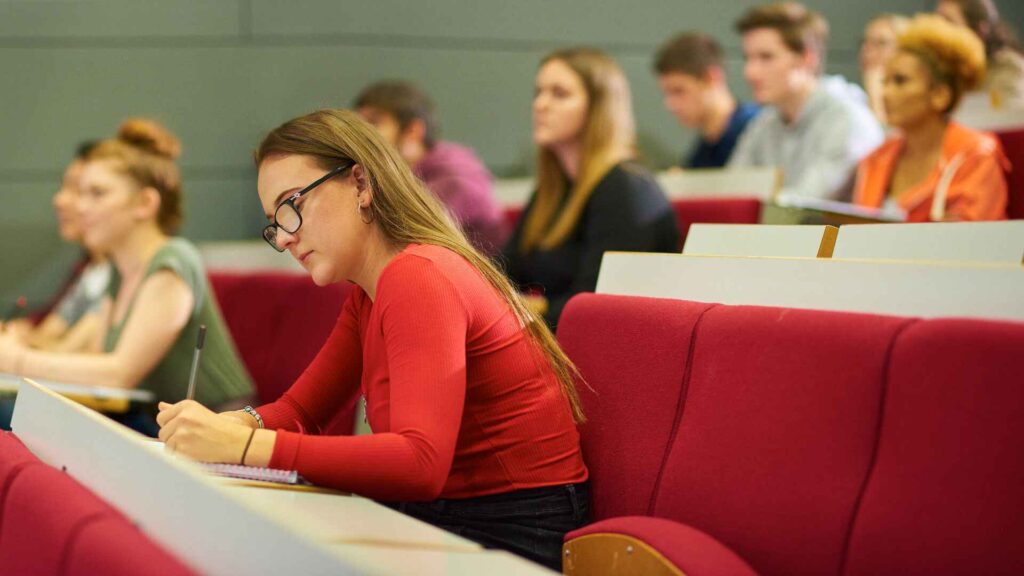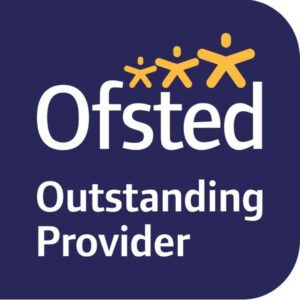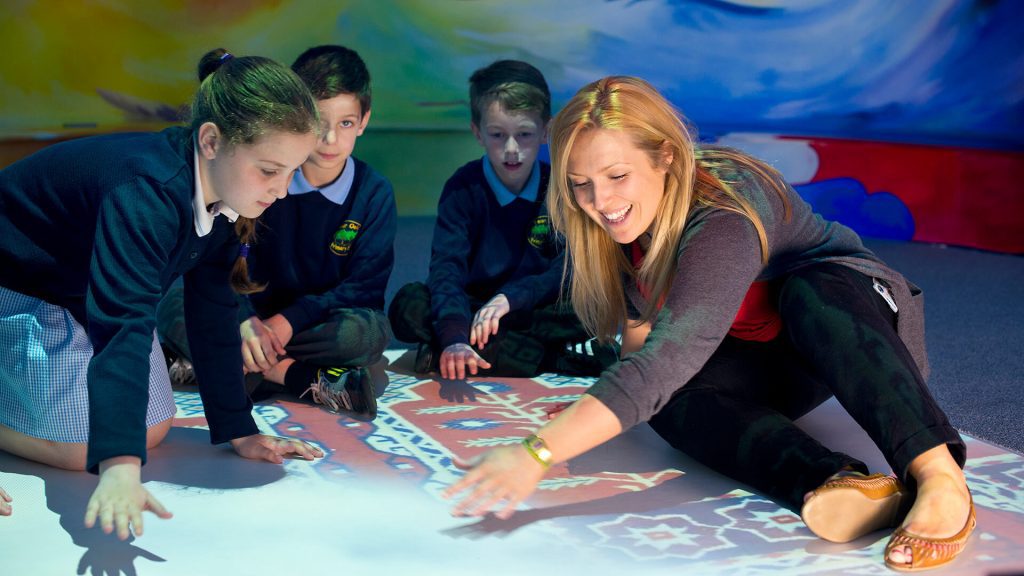Primary Education with QTS (SEND) (5-11) BA (Hons)
UCAS code: 0P60
Support every learner, shape every future. Take your first steps towards becoming a champion for SEND and graduate with recommendation for Qualified Teacher Status (QTS). Master multi-sensory teaching strategies, explore whole-school SEND approaches, and build the skills and confidence to support every learner in primary school.
Subject to validation.
Overview
| Course length: | 3 Years full-time |
|---|---|
| Start dates: | September 2026 |
| Location: | Edge Hill University |
| Example offers: | BBC-BBB (A Level) or DMM (BTEC) |
| Subject(s): | Education and Teaching |
| Faculty: | Education |
| Department: | Primary and Childhood Education |

Are you passionate about supporting children with special educational needs and disabilities? Our specialist SEND pathway is designed for aspiring teachers, like you, who want to make a real difference. This programme equips you with the specialist knowledge, confidence, and practical skills to become a SEND advocate, all while earning a full degree in Primary Education.
You’ll learn to teach children aged 5–11 across the primary curriculum, using creativity, evidence-based strategies, and multi-sensory approaches to make learning engaging, enriching, and inclusive for every pupil. You’ll explore whole-school SEND strategies, discover how to adapt lessons to meet individual needs, and understand how inclusive education transforms life chances, giving you the tools to shape equitable learning experiences.
Professional practice is central to your journey. Extensive school placements allow you to apply your knowledge in real classrooms, observe expert teachers, and receive ongoing guidance to meet the Teachers’ Standards. You’ll also gain invaluable experience in specialist educational settings, preparing you for a career supporting SEND learners.
Successful completion of the programme will lead to recommendation for Qualified Teacher Status (QTS), enabling you to work as an early career teacher in primary schools, across the UK and overseas. Our graduates go on to teach creatively and inclusively across the full primary age range (5–11), consistently meeting and exceeding national standards while making a lasting impact on children’s lives.
By the time you graduate, you’ll be a confident, reflective, and highly capable teacher, ready to inspire, empower, and lead the next generation, with inclusion and every child’s potential at the heart of your practice.
 Ofsted Outstanding Provider
Ofsted Outstanding Provider
What you'll study
In your first year, you’ll develop the knowledge and skills that will help you thrive throughout your degree and prepare for your future career. You’ll explore key concepts and legislation around Special Educational Needs and Disabilities (SEND), and begin to understand how children grow, learn and develop. You’ll also start to look at different curriculum subjects and learning theories that shape effective teaching.
Your first professional practice placement will give you the chance to see these ideas in action. You’ll spend time in a school setting, applying what you’ve learned and gaining valuable hands-on experience that brings your studies to life.
In Year 2, you’ll start to build more advanced skills in research, reflection and critical analysis. You’ll explore how different curriculum subjects connect, and why it’s important to look beyond the curriculum to understand the wider factors that influence children’s learning and wellbeing.
You’ll take part in another professional practice placement, focusing on inclusive education and what it means in real-world settings. You’ll explore the legal and ethical responsibilities that come with promoting equality and ensuring every child has access to the support they need.
You’ll also begin to look ahead to your future career, developing your leadership and teamwork skills, and learn how you can play a key role in driving positive change in education.
Your final year is about bringing everything together and stepping confidently into your future role. You’ll consolidate your understanding of inclusion and SEND through critical discussions about what inclusivity really means in education, and how schools can make it a reality.
You’ll explore academic considerations of inclusion, culture and leadership, curriculum access, and the importance of pupil and parent voice. You’ll also discover how you can shape and influence the curriculum yourself, using creativity to make learning meaningful and accessible for every child.
Your final professional practice placement will give you the chance to put everything you’ve learned into action. You’ll refine your teaching approach, build confidence in the classroom, and prepare for life as a qualified teacher, ready to make a lasting difference.
How you'll study
Throughout your BA (Hons) Primary Education with QTS (SEND) degree, you’ll experience a variety of engaging and supportive teaching methods. Learning takes place through on-campus lectures, seminars, workshops and tutorials, all complemented by our virtual learning environment. Here, you’ll find online resources, interactive activities and teaching tools that help you study independently and at your own pace.
You’ll also take part in Intensive Training and Practice (ITAP), a focused element of our teacher training curriculum. ITAP is designed to help you consolidate your understanding of effective teaching, rehearse your skills in a supportive environment, and receive expert feedback from tutors and experienced teachers. Our ITAPs are designed to utilise the latest research and technology as well as draw on the outstanding mentors, tutors, and teacher expertise from across our partnership. Over the course of your training, you will have the opportunity to participate in several days of Intensive Practice focusing on aspects of pivotal practice such as: behaviour management, scaffolding, professional behaviours and questioning.
Across your training, you’ll participate in several ITAP days that explore pivotal aspects of classroom practice, such as behaviour management, scaffolding, professional conduct and effective questioning. During these times, your timetable may vary, and you may attend campus or placement settings outside your usual schedule.
Placements
You will spend a significant amount of time undertaking professional practice placements, normally in key stages 1 and 2 in schools and other educational settings. During these experiences you will have opportunities to observe the work of expert practitioners. You will reflect on and discuss this practice with those practitioners and your trained school-based mentor. As you take on increasing responsibility for children’s learning and development, you will start by working with small groups under the direction of the class teacher, sometimes with a student teacher partner, and progress to planning for and working with the whole class for significant periods of time, managing the learning of every child.
How you'll be assessed
You’ll be assessed in a variety of ways designed to reflect the practical and professional nature of teaching. Assessment methods include portfolios of work, written assignments, in-class tests and audits, poster presentations, as well as group and individual oral presentations.
During your professional practice placements, your school-based mentor will assess your progress through reflective conversations, regular observations, and reviews of your planning and assessment records. They’ll also consider feedback from colleagues and the children you work with, helping you to develop a rounded understanding of your impact as a teacher.
In all cases, you will be given clear assessment guidance. Assessment criteria are shared with you in advance, and you’ll be given constructive feedback to help you set personal targets and take confident next steps in your development.
Throughout your degree, you’ll compile an electronic portfolio that evidences your growing knowledge, skills and professional practice. By the end of the course, this will form a comprehensive record of your achievements and demonstrate that you meet the Teachers’ Standards required for Qualified Teacher Status (QTS).
There are no formal written examinations on this programme. Instead, assessment is continuous and reflective, helping you to apply what you learn directly to your classroom practice.
Who will be teaching you
For 140 years, Edge Hill’s Faculty of Education has been at the forefront of teacher education. Today, it enjoys the enviable position of being one of the UK’s leading providers of education, training and research for the children’s workforce.
You’ll be taught both on campus and during professional practice placements by a team of highly qualified and experienced tutors and teachers. Each one is dedicated to excellence in primary education and committed to modelling high-quality practice, helping you develop your own professional teaching style and confidence in the classroom.
Throughout your degree, you’ll be supported by a personal academic tutor who will work with you to manage your studies, prepare for professional placements and plan for your future career.
Our lead mentors and mentor leadership team are also central to your training experience. As experts in their field, they bring deep knowledge of the trainee curriculum and provide tailored guidance on both curriculum content and assessment. Their ongoing support helps you, and your school-based mentors, to make strong, steady progress throughout your journey to becoming a teacher.
Please note, the above examples may differ from actual offers made. A combination of A Level and BTEC awards may also be accepted. If you have a minimum of two A Levels (or equivalent), there is no maximum number of qualifications that we will accept UCAS points from. This includes additional qualifications such as Extended Project Qualification (EPQ), AS Levels that haven't been continued to A Level, and General Studies AS or A Level awards.
Entry criteria
Typical offer 112-120 UCAS Tariff points, for which no specific subjects are required, plus GCSE English Language or English Literature, GCSE Mathematics and GCSE Science at Grade C or Grade 4 or above (or equivalent).
You are expected to have a commitment to, and understanding of, primary education, demonstrating the personal attributes, values and motivation required to train as a teacher.
An interview forms part of the selection process, which can be conducted online or face to face.
Please note, for the purposes of initial teacher training, level 2 literacy and numeracy qualifications are not considered as equivalent to GCSE Grade C or Grade 4 in English Language or English Literature and Mathematics.
If you accept a formal offer from Edge Hill University you will be required to meet the Department for Education’s standards for physical and mental fitness to teach and clearance to work with children.
Further information, including a Declaration of Health questionnaire and details of how to apply for a Disclosure and Barring Service (DBS) Enhanced Disclosure will be sent to you after you have firmly accepted an offer.
Example offers
| Qualification | Requirement |
|---|---|
| A Level | BBC-BBB. |
| UCAS Tariff points | 112-120 points. |
| BTEC Extended Diploma (or combination of BTEC QCF qualifications) | Distinction, Merit, Merit (DMM). |
| T Level | Overall grade of Merit. |
| International Baccalaureate (IB) | We are happy to accept IB qualifications which achieve the required number of UCAS Tariff points. |
| Access to Higher Education Diploma | 45 credits at Level 3, for example 15 credits at Distinction and 30 credits at Merit or 24 credits at Distinction and 21 credits at Merit. The required total can be attained from various credit combinations. |
Please note, the above examples may differ from actual offers made. A combination of A Level and BTEC awards may also be accepted.
If you have a minimum of two A Levels (or equivalent), there is no maximum number of qualifications that we will accept UCAS points from. This includes additional qualifications such as Extended Project Qualification (EPQ), AS Levels that haven't been continued to A Level, and General Studies AS or A Level awards.
English language requirements
International students require IELTS 6.0, with a score no lower than 5.5 in each individual component, or an equivalent English language qualification.
Fair Entry Criteria
Our new Fair Entry Criteria is a Contextual Admissions Policy that takes an applicant’s personal and educational background into account. This policy will allow eligible applicants to receive up to a two-grade reduction in their entry requirements for this course. Find out more and see if you qualify.
How to apply
Apply full-time
Read our guide to applying through UCAS to find out more about the application process.
International
Should you accept an offer of a place to study with us and formally enrol as a student, you will be subject to the provisions of the regulations, rules, codes, conditions and policies which apply to our students. These are available at www.edgehill.ac.uk/studentterms.
If you join a full time undergraduate degree at Edge Hill University, we will guarantee you the offer of a room in our halls of residence for the first year of your course.
Discover our accommodation
Facilities
 The Faculty of Education enjoys the enviable position of being one of the country’s leading providers of transformative education, training and research for the teaching and education workforce.
The Faculty of Education enjoys the enviable position of being one of the country’s leading providers of transformative education, training and research for the teaching and education workforce.
Housed in a state-of-the-art £9m building, the Faculty of Education enjoys a stunning setting from both its lakeside and piazza buildings.
Facilities in the lakeside building include a 300-seat lecture theatre, five well-equipped ICT suites, and 18 teaching rooms complete with the latest technology.
Our nearby piazza building houses our Research Hub and our Secondary and Further Education department including a lecture theatre and a number of seminar rooms.
Finance
Tuition fees
UK Full-Time
£9,790
a year
International
£18,000
a year
EU/EEA and Swiss students who have settled or pre-settled status under the EU Settlement Scheme, as well as Irish nationals, may be eligible for the UK tuition fee rate.
Financial support
Subject to eligibility, UK students joining this course can apply for a Tuition Fee Loan from the Government to cover the full cost of tuition fees. UK students enrolling on the course may also be eligible to apply for additional funding to help with living costs.
Scholarships
We offer a range of scholarships, which celebrate the determination, commitment and achievement of our students. Many of our scholarships are awarded automatically. There are some however, where you will need to be involved in an application or nomination process. To find out more about our scholarships and check your eligibility, please visit our dedicated scholarships pages.
Money Matters
Please view the relevant Money Matters guide for comprehensive information about the financial support available to eligible UK students.
EU/EEA and Swiss students who have settled or pre-settled status under the EU Settlement Scheme may be eligible to apply for financial support. Irish nationals can ordinarily apply to Student Universal Support Ireland (SUSI). If you are an EU student who does not have settled or pre-settled status, or are an international student from a non-EU country, please see our international student finance pages.
Tuition fees
UK Full-Time
9,535
a year
UK Part-Time
17,000
a year
EU/EEA and Swiss students who have settled or pre-settled status under the EU Settlement Scheme, as well as Irish nationals, may be eligible for the UK tuition fee rate.
Financial support
Subject to eligibility, UK students joining this course can apply for a Tuition Fee Loan from the Government to cover the full cost of tuition fees. UK students enrolling on the course may also be eligible to apply for additional funding to help with living costs.
Scholarships
We offer a range of scholarships, which celebrate the determination, commitment and achievement of our students. Many of our scholarships are awarded automatically. There are some however, where you will need to be involved in an application or nomination process. To find out more about our scholarships and check your eligibility, please visit our dedicated scholarships pages.
Money Matters
Please view the relevant Money Matters guide for comprehensive information about the financial support available to eligible UK students.
EU/EEA and Swiss students who have settled or pre-settled status under the EU Settlement Scheme may be eligible to apply for financial support. Irish nationals can ordinarily apply to Student Universal Support Ireland (SUSI). If you are an EU student who does not have settled or pre-settled status, or are an international student from a non-EU country, please see our international student finance pages.
Your future career
This BA (Hons) Primary Education with QTS (SEND) degree is accredited by the Department for Education. This means that successful completion of the course will enable you to gain recommendation for Qualified Teacher Status (QTS).
Before the end of your degree, you will complete a portfolio and a professional VIVA, providing a solid foundation to take with you into your two-year induction as an early career teacher.
Edge Hill’s graduates are working in schools across the UK and abroad. They have a great knowledge of the curriculum and a strong understanding of primary education for key stages 1 and 2. We’ll support you in your job search and when you’re finding your feet as a newly qualified teacher.
Course changes
Every effort has been made to ensure the accuracy of this information, however our courses are subject to ongoing review and development. Changing circumstances may necessitate alteration to, or the cancellation of, courses.
Changes may be necessary to comply with the requirements of professional bodies, revisions to subject benchmarks statements, to keep courses updated and contemporary, or as a result of student feedback. We reserve the right to make variations if we consider such action to be necessary or in the best interests of students.











